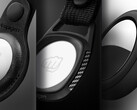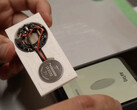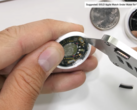Apple's long-anticipated AirTags launched in order to sell a highly idealized version of the future in which the OEM's customers could keep track of their personal possessions at all times and keep them much safer from theft or loss at US$29 each (or $99 for 4). However, it has since been demonstrated that there is a much darker and bleaker potential flip side to this coin.
A number of vloggers and correspondents have pointed out that AirTags could also conceivably be used to track unsuspecting people (or their cars) in secret without their realizing. The Apple products have thus been implicated in cases of stalking, theft or privacy invasion as of late.
It could be argued that other forms of personal security tag, such as those from Tile, could also be turned to these malicious use-cases. Then again, AirTags have access to a much wider and denser active network to remain connected to their owners; furthermore, their replaceable battery makes them that more versatile and resilient over time.
Finally, the brutal truth is their brand name and its pervasive status and role in society today make AirTags a bigger and easier target for bad press such as this. Apple is patently aware of this, as it has just released a public statement listing the latest "advancements" put in place to avoid the potentially detrimental exploitation of its accessory's properties.
They include "actively working with law enforcement", an effective disclaimer of "intended" AirTag uses that will appear during their set-up in the future and Precision Finding, by which iPhone 11-, 12-, and 13-series units will be able to detect the tags with increased efficacy and accuracy.
Nevertheless, this may not fix every possible issue with their potential abuse. For example, potentially unknown AirTags may become easier to find due to a "re-tuning" of the alarm they can be programmed to emit; however, this may not be effective or applicable in all cases, and also does nothing to address reported sales of units modified to work without the inbuilt buzzer in any case.
In addition, it will still be just as difficult to detect an unwanted personal tracking device should one only have an Android device on them at the time. Finally, an update to Apple's " unwanted tracking alert logic" may only work so well should a possible subject still be able to get all the way home before it generates an alert.
All in all, the steady rise of electronic surveillance, both of these types and otherwise, may be an increasingly worrying trend for many of us in this tech-forward world.




















